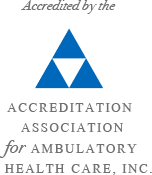What Is Involved In A Small Bowel Endoscopy
 What Is a Small Bowel Capsule Endoscopy?
What Is a Small Bowel Capsule Endoscopy?
A small bowel capsule endoscopy is a procedure used to examine the three parts of the small intestine, which forms the middle segment of the human gastrointestinal tract. It is one of the most effective and least invasive ways to get diagnostic images of the small intestine.
During the procedure, the patient swallows a small video camera about the size of a regular pill. The capsule comes equipped with its own lighting and is capable of taking pictures as it passes through the gastrointestinal tract. The patient must also wear a small recording device.
When the process is complete, the doctor can review images from the video camera. This gives you a unique opportunity to get diagnostic insights about this area of the body.
Who Makes a Good Candidate?
Most patients get the procedure when a doctor determines that they may be bleeding from the small intestine. Early symptoms include things like diarrhea or constipation and visible blood in the stool.
Patients may be of any age or background. They may be otherwise healthy or might have other health conditions. It’s important to discuss any health concerns with your doctor in advance, as you may be required to adjust or temporarily discontinue certain medications.
The Benefits of Capsule Endoscopy
Small bowel capsule endoscopy is used when there is a suspected gastrointestinal problem that can’t be reached using traditional techniques like colonoscopy or upper endoscopy. Its principal benefit is the ability to evaluate health issues in the small intestine accurately.
A successful small bowel capsule endoscopy usually leads to treatment recommendations that help with intestinal bleeding, polyps, inflammatory bowel disease, ulcers, and tumors. Many of these conditions worsen without treatment; most produce disruptive, uncomfortable symptoms.
The Recovery Process
From start to finish, a small bowel endoscopy takes only a few hours. The imaging equipment passes naturally through the intestines and is expelled within the course of a day. You’ll usually be allowed to eat and drink within a short time after capsule ingestion.
While the equipment does its work, it is crucial to avoid strenuous exercise and to avoid contact with MRI equipment.
Most patients experience no discomfort during the study, and once the equipment has passed, no recovery time is called for. However, it’s essential to remain in touch with your doctor and seek attention right away if you feel bloating, pain, nausea, or vomiting as these are common signs of a bowel obstruction.
How to Prepare for It
It’s typically necessary for patients to avoid all food and drink for at least twelve hours beforehand. This also includes water. Iron, aspirin, and over-the-counter medications that influence digestion are usually suspended. Patients with a pacemaker, defibrillator, or a history of bowel complications should discuss these issues with the doctor and may need to make additional preparation.
Sometimes, patients require more intensive bowel cleaning before the procedure. This usually comes in the form of colon cleansing, where large amounts of water (or other fluids) are moved through the colon through a specialized tube entered in the rectum.
It is vital to only perform colon cleansing under a doctor’s supervision.
At GPDDC – Gramercy Park Digestive Disease Center – our medical staff consists only of experts in gastroenterology. We have successfully performed hundreds of interventions for patients with small bowel complaints. Our experience ensures the absolute minimum risk of complication. To find out more or get started, contact us today.


